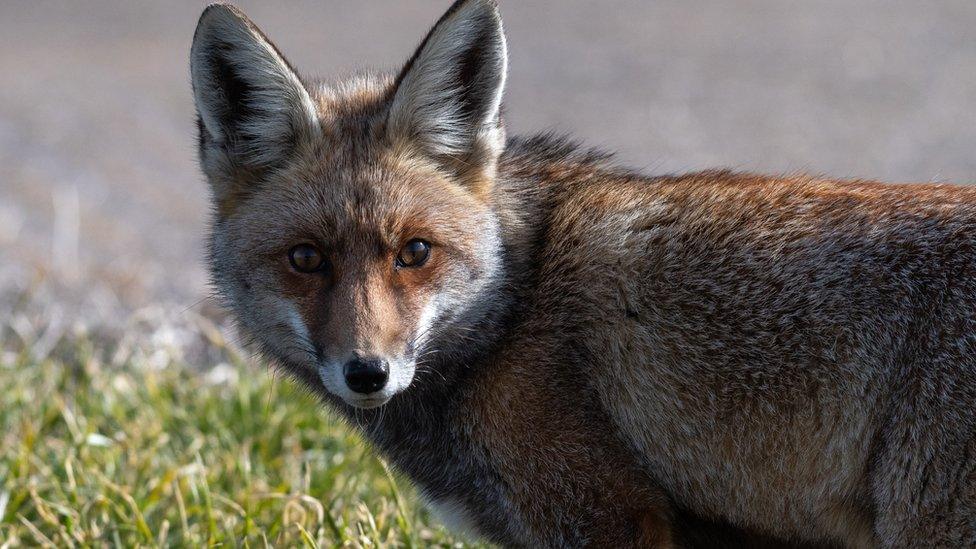Animals have stand-offs over garden food, Nottingham study says
- Published
Fox and badger have stand-off over food
Badgers, hedgehogs, foxes and cats are fighting and having stand-offs over food left in British gardens, a study has revealed.
Two universities analysed videos showing interactions between species.
They found food left by people in urban gardens could benefit animals but could also draw competitors and predators.
Nottingham Trent University (NTU), which worked on the study, said it was important to understand more about urban animals.
The university, which worked with the University of Brighton on the study, found animals displayed a number of aggressive behaviours, including lunging, biting and striking out.
In one case, a hedgehog was pushed into some water.

Foxes tended to be dominated by cats when the animals faced off
According to the study, badgers tended to dominate other species in the garden hierarchy while hedgehogs had more clashes than expected.
The footage revealed more aggressive and submissive behaviour among animals than neutral interactions.
From 316 instances where animals were spotted together, 175 ended in confrontation.
Researchers also found that creatures were more likely to confront different species than their own.
Cats and foxes appeared to take a particular dislike to one another, with 77% sparking some form of aggressive or defensive reaction - with cats dominating foxes.
'Barge and Roll'
Badgers were stronger than all other species in the contest for food - and to the research team's surprise, hedgehogs outcompeted cats.
They suggest this could be because domestic cats are not as physically or behaviourally well adapted to defend themselves against hedgehog spines as wild predators.
Hedgehogs were also found to be the most combative with each other - with more than half (55%) of interactions between them leading to some form of aggression.
This included a move dubbed the "barge and roll" by the researchers, whereby one hedgehog attacks another by running at it, causing the victim to roll up before being pushed away by the assailant.
Prof Dawn Scott, lead researcher from NTU's School of Animal, Rural and Environmental Sciences, said: "Food provided by people may help wild animals but may also attract animals together that could compete, injure, or predate each other.
"The consequences of interactions between garden mammals are numerous and can become aggressive between competing species.
"It could lead to injury or death and increased competition might also reduce access to resources for subordinate species or individuals.
"We need to better understand interactions between urban animals and the potential effects of providing food in this way, to ensure any potential risks are minimised."

Follow BBC East Midlands on Facebook, external, on Twitter, external, or on Instagram, external. Send your story ideas to eastmidsnews@bbc.co.uk, external.
Related topics
- Published30 January 2023
